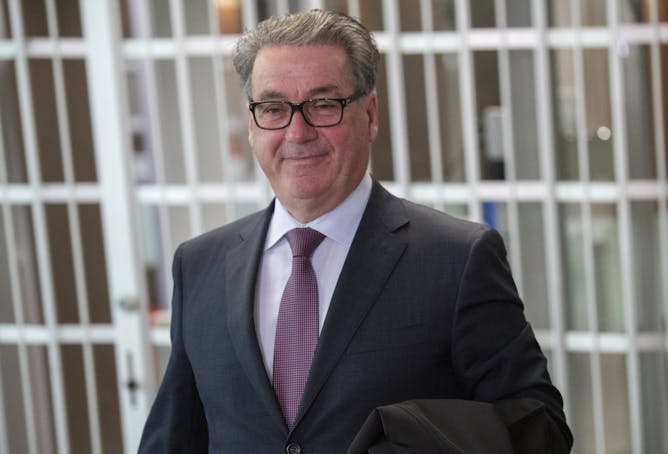|
The SNC-Lavalin controversy will be hanging over the Trudeau government again this week as it attempts to change the channel by bringing in the budget. It’s more likely, however, the scandal will be around until this fall’s election. One of the most misunderstood parts of the political storm is the legal mechanism at the heart of the issue: deferred prosecution agreements. Today in The Conversation Canada, Sukanya Pillay of the University of Windsor offers an excellent explainer on DPAs – how they work, why Canada brought them in and why the
decision to prosecute (or not) is providing fodder for both sides of the debate.
It’s one of several great reads we have to start your week.
-
It’s tax season, and part of the stress that comes with filing your personal income tax is deciding whether it’s best to do it yourself or to hire a specialist. Francois Brouard of Carleton University offers advice on which way you should go: DIY or hire a pro?
-
Two environmental experts, Mark Winfield and Deborah Curran, have combined with legal expert Martin Olszynskiwe to help us wade through the “post-truth politics” about Bill C-69, the government’s latest attempt to restore some credibility to Canada’s environmental assessment process.
-
Is it possible that a young boy’s behaviour can be predicative of his financial success later in life? Francis Vergunst of the Université de Montréal writes about a newly published study that attempts to answer that question by following kindergarten boys over 30 years. Are you still buying your pot from the black market?
-
Michael Armstrong from Brock University provides some interesting insights on the legal and illegal marijuana markets five months after legalization.
And finally…we’ve added a special section to our newsletter to highlight the work of our colleagues at The Conversation Australia, who have provided several insightful articles on the mosque attack in New Zealand by a white supremacy terrorist.
Regards
|

Former SNC-Lavalin CEO Pierre Duhaime leaves a courtroom in Montreal in February 2019. Duhaime pleaded guilty in a bribe scandal around the construction of a $1.3-billion Montreal hospital.
THE CANADIAN PRESS/Paul Chiasson
Sukanya Pillay, University of Windsor
The SNC-Lavalin controversy has resulted in some misunderstandings and misinterpretations of the legal mechanism at its heart: Deferred prosecution agreements.
|

Ah, yes. Once again, it’s tax season. If you decide to outsource filling out your returns to someone else, be sure to ask the right questions to get the best service.
Shutterstock
Francois Brouard, Carleton University
You need to be confident and establish a firm, trusting relationship before entrusting someone to do your taxes. Start as soon as possible. Don't wait for the April 30 tax deadline.
|

The United We Roll convoy of semi-trucks travels the highway near Red Deer, Alta., in February 2019 en route to Ottawa.
THE CANADIAN PRESS/Jeff McIntosh
Mark Winfield, York University, Canada; Deborah Curran, University of Victoria; Martin Olszynski
Canadians would be better served by a calmer and better-informed debate over the specifics of Bill C-69 than what we have been seeing over the past few weeks.
|

Behaviours identified as early as kindergarten are clues about larger contexts that have lifelong consequences for individuals and society.
(Shutterstock)
Francis Vergunst, Université de Montréal
Inattention is one of the most important early behavioural risk factors for a range of adverse life outcomes, including lower earnings.
|

Governments worry that medical cannabis tax exemptions could tempt recreational users. Some might seek prescriptions to save money. Eliminating taxes on medical purchases of only cannabis oil could work as a compromise.
(Shutterstock)
Michael J. Armstrong, Brock University
With cannabis, governments must balance taxing legal sales versus competing with illegal ones.
|
Terrorism in New Zealand
|
-
Greg Barton, Deakin University
There is deep sadness in the Christchurch attacks, but little shock. We need to address the permissive political environment that allows such hateful extremism to be promulgated so openly.
-
Stephen Croucher, Massey University
Research shows that many members of dominant groups perceive minorities and immigrant groups as a threat, which builds up to fear and hate. We can all do something to change that.
-
Michelle Grattan, University of Canberra
The Senate doesn't have the power to throw him out, but it would be a bad course anyway, setting an unfortunate precedent as well as making him a martyr in the eyes of the extreme right.
|
|